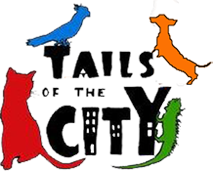?? Is your pet the cutest, scariest or silliest in his or her costume?…
March is Pet Poisons Prevention Awareness Month
Preventing Pet Poison Emergencies

Poisons in Plain Sight
Common household items such as plants, foods and chemicals can harm a pet if ingested. Each year, thousands of pets suffer and many die from accidental household poisoning. Do you know what pet toxins and poisons are in the home?
Top 10 Toxins and Poisons
Cats
1. Lilies, such as Easter, Asiatic and tiger lilies
2. Insoluble oxalate plants, such as philodendron and dieffenbachia
3. Insecticides, such as topical flea/tick treatments and insecticidal sprays or shampoos
4. Household cleaners, such as drain, window and surface cleaners
5. Human and veterinary NSAIDS, such as ibuprofen, naproxen, carprofen and meloxicam
6. Amphetamines, such as ADD/ADHD drugs like Adderall® and Concerta®
7. Mouse and rat poisons
8. Antidepressants, such as Effexor®, Cymbalta®, Wellbutrin® and Prozac®
9. Laundry detergents
10. Paints, stains and varnishes
Dogs
1. Foods, such as chocolate, xylitol and grapes/raisins
2. Insecticides, such as sprays, bait stations and topical flea/tick treatment
3. Mouse and rat poisons
4. Human NSAIDS, such as ibuprofen and naproxen
5. Household cleaners, such as sprays, detergents and polishes
6. Antidepressants, such as Prozac®, Paxil®, Celexa®, and Effexor®
7. Fertilizers, including bone meal, blood meal and iron-based products
8. Acetaminophen, such as Tylenol® and cough/cold medications
9. Amphetamines, such as ADD/ADHD drugs like Adderal® and Concerta®
10. Veterinary pain relievers, specifically COX-2 inhibitors such as Rimadyl®, Deramaxx® and Previcox®
Accidental Poisoning
If you suspect a pet has ingested something that could be harmful, don’t hesitate to seek immediate veterinary advice. If you do not have access to a local emergency veterinary clinic, the Pet Poison Helpline is available 24 hours a day, 365 days a year. The Pet Poison Helpline can be reached at (800) 213-6680. There is a $39 charge per incident.
Pet Insurance for Everyone’s Peace of Mind
Owners with pet insurance often have the greatest peace of mind about leaving their pet in someone else’s care. By leaving pet insurance claim forms and veterinary clinic information for the pet sitter, the client has peace of mind about a pet’s safety, and the pet sitter won’t hesitate to seek veterinary care because he or she knows that necessary medical treatments are covered.

This Post Has 0 Comments